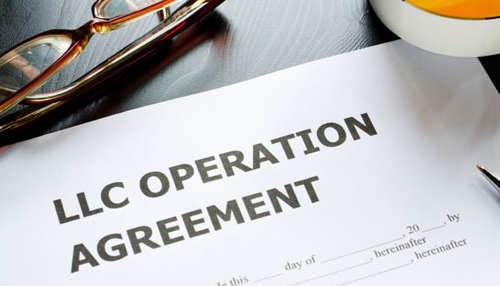Operating agreements are one of the most vital, and overlooked, tools in running a limited liability company. We’ve actually covered operating agreements as part of our ‘ABCs of MyCorp’ series, but we never delved into what an operating agreement should actually say.  As a quick refresher, an operating agreement is essentially a document that defines how the LLC will be run, and the SBA recommends that every LLC draft one. The trouble is that only a couple of states, like Missouri and New York, legally require new LLCs to have an operating agreement. But without the rules, structure, and regulations an operating agreement provides, your LLC could be in serious trouble if partners disagree, a member wants to leave, or if the state starts questioning the validity of your LLC. Operating agreements are also pretty easy to draft and only need to cover a few key areas.
As a quick refresher, an operating agreement is essentially a document that defines how the LLC will be run, and the SBA recommends that every LLC draft one. The trouble is that only a couple of states, like Missouri and New York, legally require new LLCs to have an operating agreement. But without the rules, structure, and regulations an operating agreement provides, your LLC could be in serious trouble if partners disagree, a member wants to leave, or if the state starts questioning the validity of your LLC. Operating agreements are also pretty easy to draft and only need to cover a few key areas.
Ownership
By default, the portion of an LLC’s profits, losses, and assets each member is entitled to is divided by initial investment. So if there is only one member, everything is 100% theirs, and if two partners invested equal amounts, then it is split 50-50. If that works for your LLC, great! Make a note of it and move onto the next section. However if, say, one member contributed the idea that the LLC is built on, but not as much money, they may still feel entitled to a higher percentage of the LLC’s profits and assets. Discuss ownership rights with all of the members, and make sure everyone is okay with how profits, losses, and assets are divided.
Rights and Responsibilities
Hopefully, each of the LLC’s initial members brings a unique talent or skill set to the table. For example, one member could be in charge of marketing, while another manages the office. You need to put any division of labor into your operating agreement so each member knows what is expected of them. You’ll also need a plan to settle disputes between members, and outline how much of a say each member has in business decisions.
Joining and Leaving the LLC
Plan for the future when drafting your operating agreement – there may come a time when a new member is sought out, or an old member chooses to leave. In some states, the loss of an initial member is actually enough to cause the automatic dissolution of the LLC. You’ll need a plan in place to deal with gaining and losing members. What is a leaving member entitled to? How involved with the business should they remain? What do new members get by joining up? Will their initial investment determine their ownership of the LLC’s profits, losses, and assets? These are the sorts of questions you have to answer, or you could waste weeks arguing out the details after an old member leaves or a new one comes in.
Dissolution
If and when the day of an LLC’s dissolution comes, you should have terms for that dissolution outlined in your operating agreement. You need to decide how assets will be divided after the LLC’s debts are paid, and whether or not the individual members are allowed to try and run their own business based on the idea behind the LLC.
Severability Provision
Finally, your operating agreement should have a severability provision – this is normally standard legal boilerplate. It will just say that, if by chance a provision of the operating agreement runs contrary to state or federal law, all other aspects that are not contrary to the law should still survive. Otherwise, a small legal oversight could be enough to invalidate the entire agreement.
Ready to form your own LLC? Need help drafting an operating agreement? Leave a comment below, or give us a call at 1 (877) 692-6772!